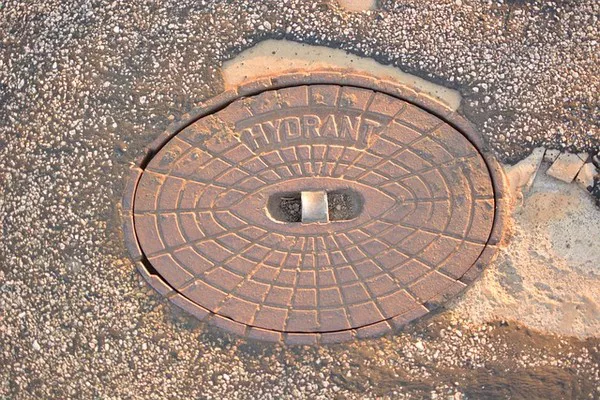Sewage treatment is a critical process that plays a pivotal role in maintaining public health, protecting the environment, and ensuring the sustainable use of water resources. As urbanization continues to surge and populations grow, the proper treatment of sewage becomes increasingly essential. This article delves into the reasons why sewage treatment is imperative, examining its impact on human health, the environment, and the overall well-being of communities.
Safeguarding Public Health
One of the primary reasons sewage should be treated is to protect public health. Raw sewage contains a plethora of harmful microorganisms, including bacteria, viruses, and parasites, which can cause a wide range of waterborne diseases. These diseases, such as cholera, dysentery, and typhoid, can lead to severe illness and even death if left untreated.
By subjecting sewage to a rigorous treatment process, these harmful pathogens are effectively removed or neutralized. Biological treatment methods, such as activated sludge and anaerobic digestion, break down organic matter and reduce pathogen levels. Disinfection techniques, such as chlorination or ultraviolet radiation, provide an additional layer of protection, ensuring that treated water is safe for discharge into water bodies or reuse.
The importance of proper sewage treatment in preventing disease outbreaks cannot be overstated. Inadequate treatment or untreated sewage poses a direct threat to the communities relying on water sources downstream, leading to the spread of waterborne illnesses. By investing in sewage treatment infrastructure, societies can create a robust defense against waterborne diseases, promoting public health and well-being.
Protecting Water Quality and Ecosystems
Untreated sewage contains various pollutants, including nutrients such as nitrogen and phosphorus, heavy metals, and synthetic chemicals. Discharging untreated sewage into water bodies can have severe consequences for water quality and ecosystems.
Excessive nutrients from untreated sewage can lead to eutrophication, a process where water bodies become enriched with nutrients, triggering rapid algae growth. This algal bloom depletes oxygen levels in the water, creating “dead zones” where aquatic life cannot thrive. The disruption of aquatic ecosystems can have cascading effects on biodiversity, fisheries, and the overall health of ecosystems.
Moreover, heavy metals and chemicals present in untreated sewage can accumulate in sediments and aquatic organisms, posing risks to both human and wildlife health. By treating sewage before discharge, these pollutants can be significantly reduced, mitigating the impact on water quality and safeguarding the delicate balance of aquatic ecosystems.
Sustainable Water Resource Management
The treatment of sewage is essential for sustainable water resource management. As global water scarcity becomes an increasing concern, reusing treated wastewater can help alleviate the pressure on freshwater sources. Treated sewage, also known as reclaimed water, can be safely used for various non-potable purposes such as irrigation, industrial processes, and even certain types of urban water supply.
By implementing advanced treatment technologies, such as membrane filtration and reverse osmosis, treated sewage can meet stringent quality standards for reuse. This practice not only conserves valuable freshwater resources but also reduces the environmental impact of discharging large volumes of treated or untreated sewage into rivers and oceans.
Sustainable water resource management, through the proper treatment and reuse of sewage, contributes to the resilience of communities in the face of climate change and growing water demands. It establishes a circular approach to water use, promoting a more efficient and environmentally friendly water cycle.
Regulatory Compliance and Legal Obligations
Governments and environmental agencies worldwide have established regulations and legal frameworks that mandate the proper treatment of sewage. Compliance with these regulations is crucial for industries, municipalities, and other entities responsible for sewage disposal.
Violations of sewage treatment regulations can result in legal penalties, fines, and reputational damage. Therefore, adherence to regulatory standards not only ensures the protection of public health and the environment but also safeguards the legal standing and credibility of organizations involved in sewage management.
Moreover, meeting or surpassing regulatory requirements fosters a culture of environmental responsibility. It encourages the development and implementation of innovative technologies and practices that go beyond basic compliance, promoting continuous improvement in sewage treatment processes.
See Also Why Wastewater Treatment Is Necessary
Conclusion
In conclusion, the treatment of sewage is a fundamental necessity for maintaining public health, protecting the environment, and ensuring sustainable water resource management. From preventing the spread of waterborne diseases to safeguarding aquatic ecosystems and promoting the reuse of treated wastewater, the imperative for sewage treatment is evident.
Investments in sewage treatment infrastructure and the adoption of advanced technologies are essential steps towards building resilient and sustainable communities. By prioritizing sewage treatment, societies can create a healthier, cleaner, and more sustainable future for generations to come.

